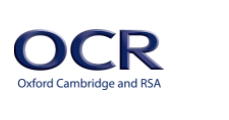Choosing between exam boards
Choosing between exam boards
Choosing between GCSE & A Level exam boards. Including AQA, Edexcel, OCR and Cambridge International
Some points:
The range of exam boards give choice for teachers and tutors along with any specification to give their pupils a chance of success.
Debate as which specification is right for the candidates regularly appear on social media. Which exam specification is considered hard or easier than others.
Not all exam boards are the same. However;
There are differences between specification as long as the appropriate amount of stipulated curriculum is covered. The assessment is valid and is sufficiently challenging.
This allows for differences between specifications as long as the appropriate amount of the curriculum is covered and the exam or assessment is valid and is sufficiently challenging.
These variations give teachers the ability to choose the right exam pathway, what they would most enjoy teaching and which they believe would best suit their pupils’ needs.
Small fluctuations are accommodated by varying grade boundaries.
Any perceived sense of easy and hard is really about the fluctuation of the grade boundaries year on year. Flexing the boundaries actually irons out any differences of easy or hard.
Just some of the GCSE & A Level exam boards



What maybe true one year might be the reverse the next. The grade boundaries will adjust.
The senior examiners responsible for setting exam grade boundaries at each board also:
scrutinise the quality of pupils’ work -the difficulty of the exam compared to the years before - any feedback they have received on how the exam has performed.
Most awards are close to that predicted statistically,
exam boards can submit evidence to Ofqual to further explain why it is right that their results didnt match the predicted outcome
Ofqual will challenge exam boards if there is a detection of unacceptable levels of challenge or undue predictability of questions.
For these many reasons teachers, tutors and pupils who search for the ‘easiest’ exam board continue to be misguided.
Other points to note:
research shows that teachers underestimate some difficulty of multiple choice questions while overestimate the difficulty of more open ended questions.
Teachers regularly overestimate the difficulty of longer more wordy questions compared to how pupils actually perform on them.
The addition of basic calculations in questions, especially at the beginning of exams can throw teachers’ judgements of varying difficulty.
The best way to decide what exam board and specification is to consider individual teacher’s interests and their pupils’ needs, which must be a better basis for choosing an exam board. Rather than easy or hard.